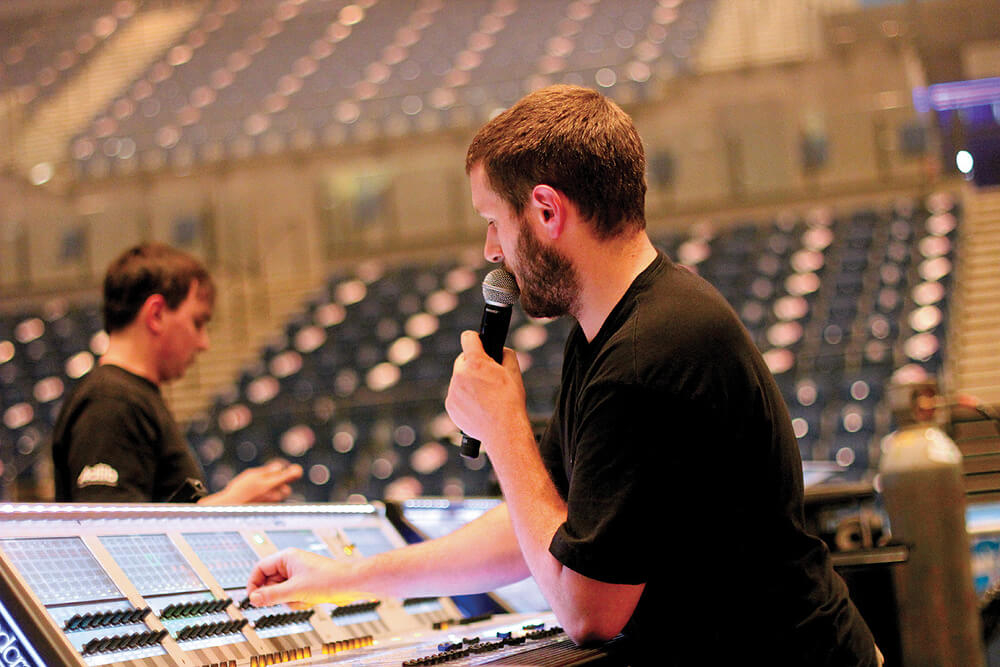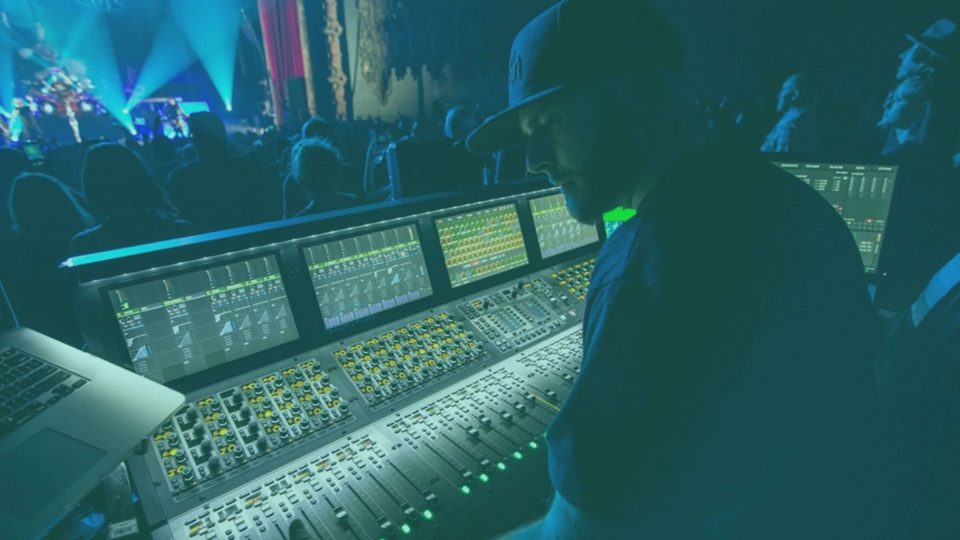What Does a Live Sound Engineer Do? Not All Hero’s Wear Capes
When we’re on the dance floor and boogying to our favourite artists, we give little thought to the crew who make it all possible. Live sound engineers are the wizards that ensure the sound we hear is top quality and keep us focused on the lyrics being sung and the vinyls being spun.
The sound quality of the gig can make or break our night out. I’m sure we’ve all been to gigs where the sound system isn’t primed for the venue it’s in, or the DJ is overloading the rig because they have no respect for the gear they’re performing on. There’s a rumour that live sound engineers hate DJ’s…
Anyway, the work of live sound engineers goes without much praise but is the very foundation of the quality of night we have when seeing our favourite artists. They’re the professionals that are directly involved in controlling the live sound of the performance.
Live sound engineers meet with the performer, whether a band or artist and perform a soundcheck before the gig. Here, the live sound engineer communicates with the performer about goals in regard to the sound and expresses concerns about adjustments that must be made before making them.
These adjustments can vary, but they usually include tweaks to factors such as volume and tonal balance.
But the work doesn’t stop there. During the performance, the live sound engineer will continue to make adjustments as the show goes on! By utilising their ears, which they have been training for a long time (probably their whole life), as well as knowledge of the gear they’re using such as a live mixing console, live sound engineers make sure that the performers and audience members hear what they need to and nothing else.
What Does a Live Sound Engineer Do?
When it boils down to it, there are two primary roles that live sound engineers perform. These roles are known as the Front of House Engineer and Monitor Mix Engineer.
The Front of House (FOH) engineer works at a sound mixing board which is located in the middle of the audience. I’m sure you’ve been to a concert so you know exactly what I’m talking about. This console is the Star Wars-esk command control centre for the sound heard by the audience through the venue’s speakers.
But the Monitor Engineer is stationed at a soundboard on the side of the stage. The Monitor Engineer makes sure that the performers can hear themselves clearly through floor or in-ear monitors.
To summarise, the FOH Engineer is in charge of the audience’s sound experience, but the Monitor Engineer directly controls the sound that the performers hear so that they can hear one another. This helps them work together and perform as well as possible.
These two roles are essential to the final product (the audience’s experience). They’re essential for great live sound!
But you’ll probably find both roles being performed by just one engineer in clubs and smaller venues.

And, of course, a live sound engineer works with the band or performer before the gig on the events sound check. This stage of the event setup is where the live sound engineer adjusts things like the volume of each performer instrument or vocals so that each can be heard equally by the audience.
This is probably the most important part of the gig. Everyone needs to be happy, both the FOH and Monitor Engineer as well as the band, that the performers can hear themselves clearly in their monitors and that the audience will hear everyone too.
What Equipment Do Live Sound Engineers Use?
At their disposal is a broad range of equipment that they need to be comfortable operating and working with. From microphone cables, effect pedals and mixing desks… a live sound engineer works with a lot of technology.
However, their main operation is based on the mixing desk.
The Mixing Board
To a sound engineer, a mixing board is like a sword to a valiant knight, but arguably less dangerous. This is where the magic of controlling volume and other dynamics of the performance happens.
Most boards can be managed by one engineer, but there are some that may need multiple live sound engineers to operate. These boards require cooperation between sound engineers in order to bring the show to life. However, this is only really a reality for big concerts or festivals.
The Microphones and Other Smaller Bits
Knowledge of different types of microphones and cables is also a key part of a live sound engineers role. Most shows may use dynamic studio mics, such as a Shure SM57 for drums, but some shows may require a switch up of microphone.
On top of these essential tools, there are smaller tools that you could deem less important – but a live engineer wouldn’t. These include utilities such as battery testers for wireless mics, in-ear monitors and as well as clip-on microphones. Also important are mixing headphones, drum set keys, DI boxes, XLR, TS, and TRS cables, and jack converters!
That’s a lot of stuff. But it all has an important part to play when it comes to bringing the final show to life.
Live sound engineers, like music producers, create experiences for an audience with sound. Like a music producer, a live sound engineer can’t turn a bad quality sound into a good one. For the music producer, there’s a solution. A place to find only top quality samples!
We at Mixxed work with a growing number of sample labels and contributors to provide you with an affordable sample subscription service that’s more accessible than any before.
You’ll have access to our growing catalogue of thousands of loops, one-shots and sound effects that you can browse, download and keep forever for less than $3 a month.
Sign up today to find your sound!
